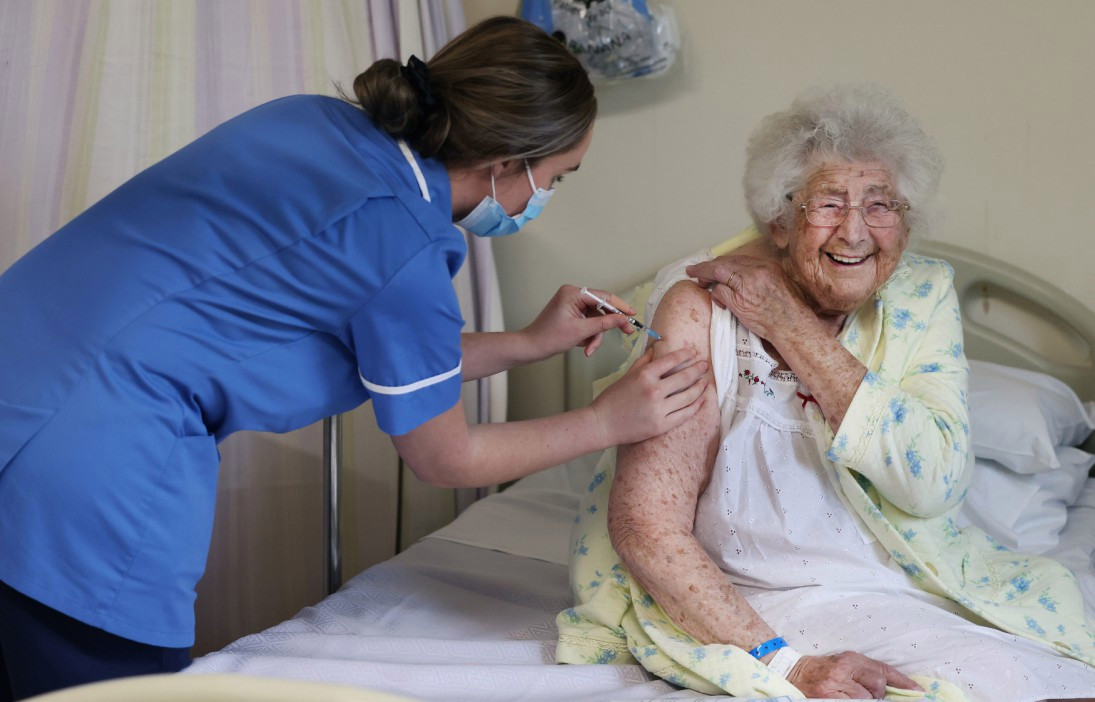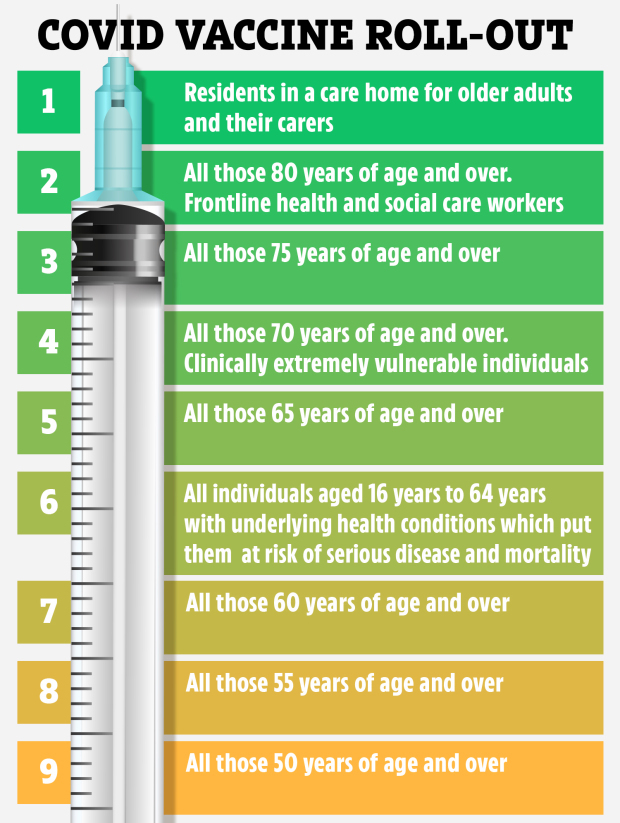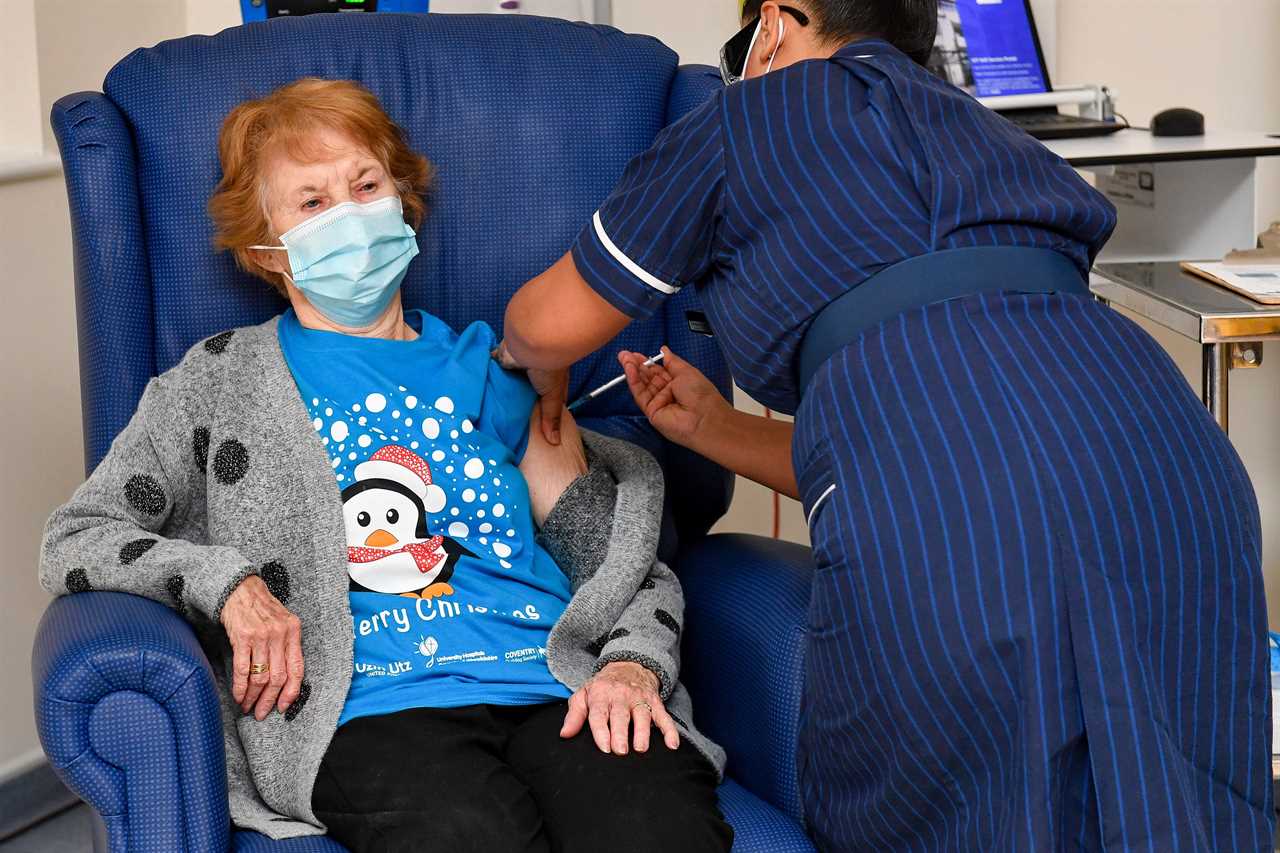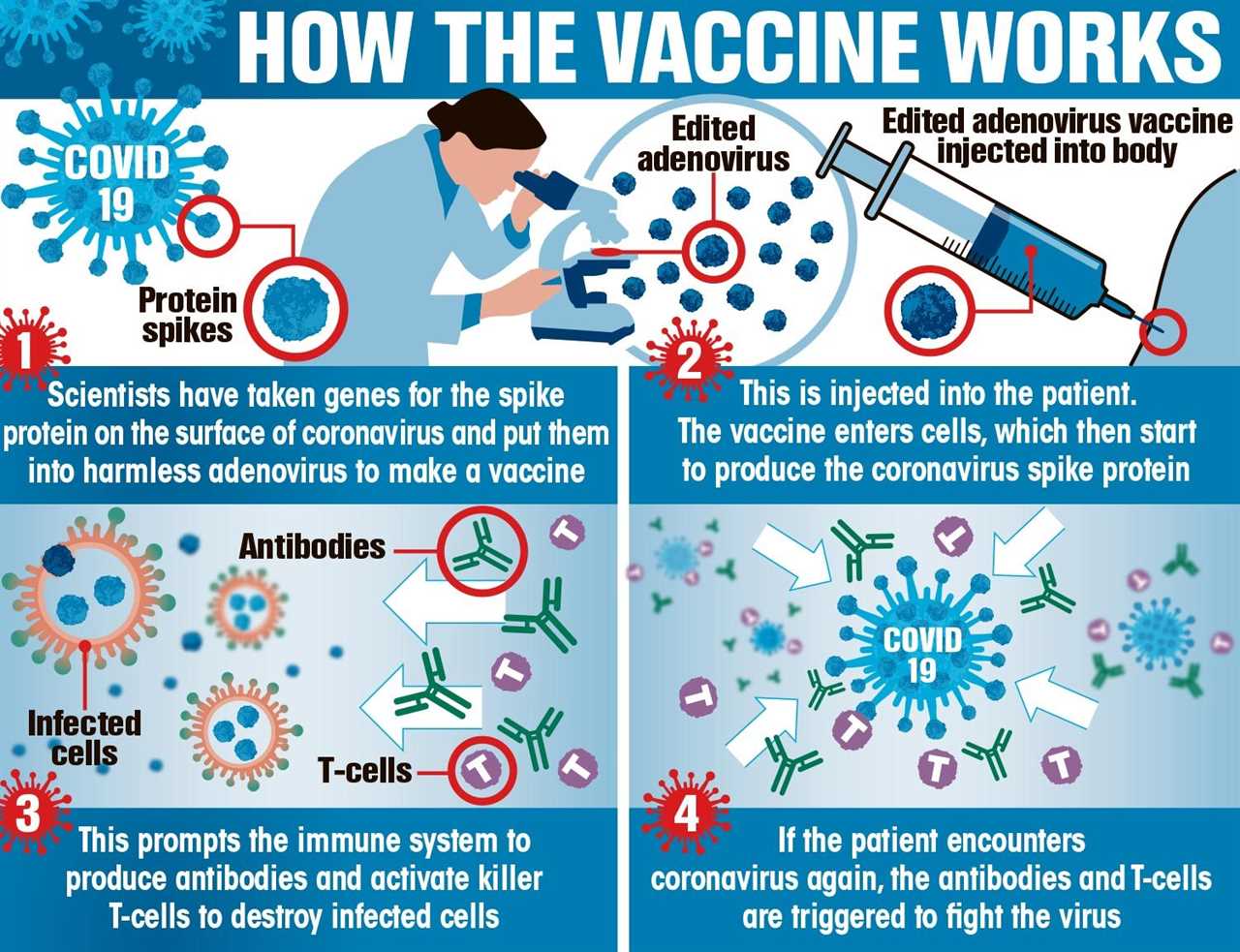HUNDREDS of coronavirus vaccine centres across England are set open in hours as GPs get ready to inoculate the most vulnerable.
The centres will be run by local doctors who will receive the Pfizer/BioNTech jabs this morning, with most GPs opening their clinics later this afternoon.

Care home residents in Scotland are due to receive the vaccine for the first time today.
NHS England and NHS Improvement said the majority of clinics will start providing the service tomorrow, with NHS staff vaccinating those aged 80 and over, as well as care home workers and residents.
The centres will operate from GP surgeries or community hubs across the country and patients will be invited to receive the jab.
The opening of the community centres comes after dozens of hospital hubs began offering vaccinations from last Tuesday.
Professor Martin Marshall, chairman of the Royal College of GPs, said: “GPs and our teams are about to embark on an enormous challenge, delivering the Covid-19 vaccination programme in the community whilst also delivering the expanded flu vaccine programme and the usual care and services our patients rely on us for.”
The NHS will contact those in the priority groups when their turn comes around.

First in line will be those over the age of 80 as well as care home residents.
This will be followed by other elderly groups and those who are in the clinically extremely vulnerable group.
Last week, 90-year-old Margaret Keenan received her first dose of the vaccine in Coventry.
Simon Stevens, Chief Executive of the NHS, previously highlighted those who would be first inline for the vaccine.
He said: “The Joint Committee on Vaccination and Immunisation have clearly recommended NHS should make sure those first offered are those at highest risk. In practice, that means starting with the over 80s, as well as people in care homes as well as staff looking after them.
In the new year, we will be extending that to many more people across the country. Although we are the first health service in the world to get vaccinating supplies from the manufacturer are phased.

“The bulk of this vaccination program will take place in the period January through to March or April for the at risk members of the population. Since you need two jabs… typically 21 days apart… that means we’ve got to reserve the second dose for those getting the first dose in December.”
The Pfizer/BioNTech vaccine is the only one currently approved for use in the UK but the chances of the University of Oxford’s Covid-19 vaccine also being rolled out by the end of this year are “pretty high”, according to lead researcher Sarah Gilbert, who is professor of vaccinology at the university.
The Medicines and Healthcare products Regulatory Agency (MHRA) is also still reviewing trial data for the Oxford/AstraZeneca jab.
Experts have now warned that the Christmas break could disrupt the vaccine roll out.

Restrictions are due to be relaxed across the UK between December 23 and 27 to allow families to spend time together in “Christmas bubbles”.
The first tier review will take place on Wednesday and experts have urged the government to think twice before moving areas into lower tiers.
It comes after experts claimed that London could be split into two tiers, as cases continue to rise in the capital.
London Mayor Sadiq Khan has also called for all London schools to be closed today after Greenwich classrooms closed early for Christmas.
The Christmas break is designed to let people spend time with their loved ones.
But Prof Gilbert said a rise in cases had been seen in the US after Thanksgiving and warned that a similar pattern could emerge in the UK after Christmas.
Prof Gilbert said: “It’s not possible to run vaccination clinics when staff are off sick, and there’s a very high transmission rate affecting people’s ability to come to be vaccinated.”
Dr Nikki Kanani, practising GP and NHS Director of Primary Care said that GPs, nurses and other primary care staff are “eager” to play their part in protecting people from the coronavirus.
Dr Kanani said: “This is the greatest vaccination programme ever undertaken by the NHS and, to help vaccinate people safely we will be working with local communities to deliver it in convenient and familiar settings.
“As a GP I am proud to be part of this huge national effort to protect our patients against the virus and I would urge the public to come forward when they are called up for the vaccine.”






